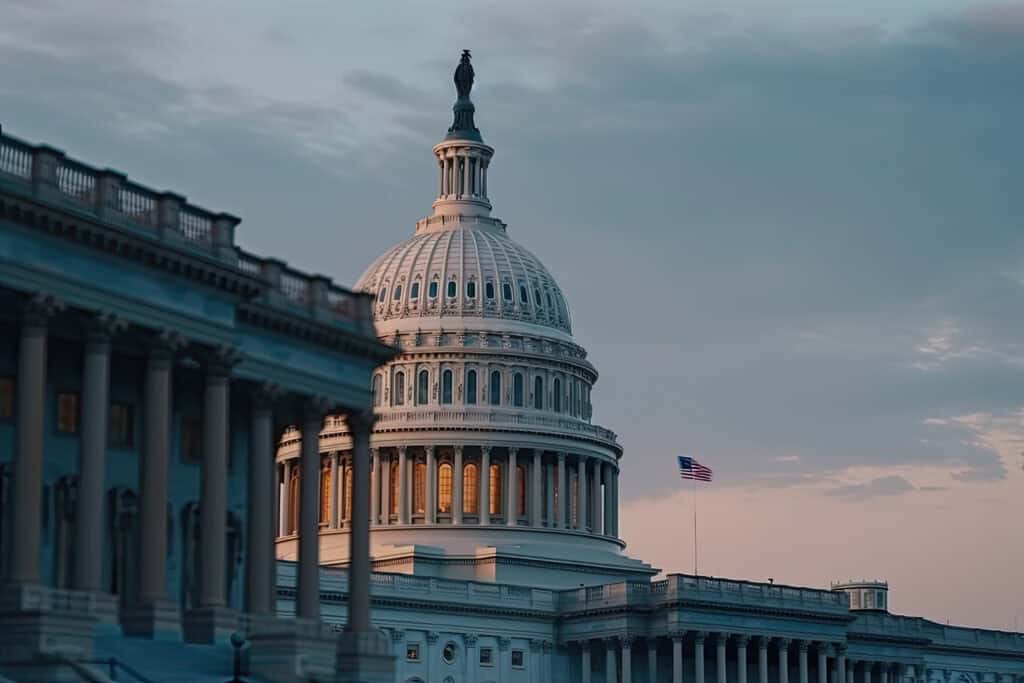
Key Takeaways:
- The U.S. House of Representatives passed the FIT21 Act to clarify digital asset regulation, with a 279 to 136 vote.
- The bill delineates the roles of the SEC and CFTC in digital asset regulation.
- The House is set to discuss the CBDC Anti-Surveillance State Act, impacting the Federal Reserve’s ability to issue digital dollars through intermediaries.
On May 22, the U.S. House of Representatives passed the Financial Innovation and Technology for the 21st Century Act (FIT21) with a 279 to 136 vote.
This bill aims to provide regulatory clarity for digital assets by defining the roles of the Securities and Exchange Commission (SEC) and the Commodity Futures Trading Commission (CFTC).
BREAKING: 🇺🇸 US House passes FIT21 crypto bill.
— Watcher.Guru (@WatcherGuru) May 22, 2024
The bill received support from 71 Democrats and 208 Republicans.
Representative Patrick McHenry argued that the current regulatory framework stifles innovation in digital assets, while Representative Maxine Waters opposed the bill, suggesting it would lead to deregulation and potential market instability.
The House is also set to discuss the Central Bank Digital Currency (CBDC) Anti-Surveillance State Act, which would restrict the Federal Reserve from issuing a digital dollar through intermediaries.
This legislative activity occurs as the U.S. approaches an election year, with digital asset regulation being a significant issue for many voters.
🚨BREAKING: US HOUSE VOTES IN FAVOR OF PRO-CRYPTO FIT21 BILL
— BSCN Headlines (@BSCNheadlines) May 22, 2024
President Joe Biden and former President Donald Trump have agreed to two debates scheduled for June 27 and September 10.

